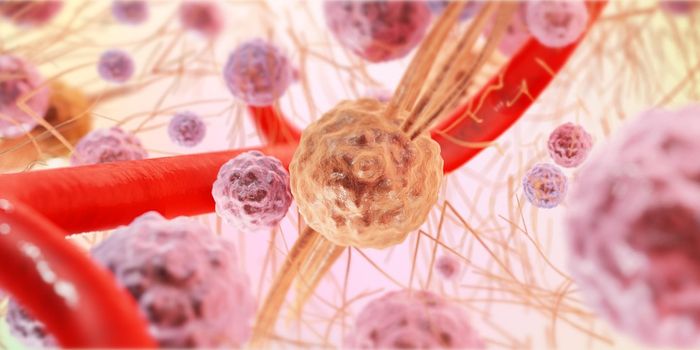Oligodendroglioma, which can be an especially aggressive form of brain cancer, may be caused by a genetic mutation. Scientists from the UK's Institute of Cancer Research (ICR) in London, in collaboration with laboratories in France and Canada, compared the genetic sequence of 134 oligodendrogliomas with the DNA of healthy cells and discovered that errors in a gene known as TCF12 are associated with the more aggressive anaplastic oligodendrogliomas. These gene mutations were found in 7.5 percent of anaplastic oligodendrogliomas. The subset of cancers appeared to grow more rapidly and be more aggressive than cancers in which this gene was intact, according to the researchers. The results were published in the journal Nature Communications and reported in Medical News Today. The article, written by Markus MacGill, explains that anaplastic oligodendroglioma are "rare primary brain tumors that are generally incurable," with a highly variable overall prognosis and few treatment targets identified (http://www.medicalnewstoday.com/articles/295260.php).

According to the American Brain Tumor Association, approximately 4 percent of primary brain tumors are oligodendrogliomas, representing about 10 to 15 percent of the gliomas. If the tumor is accessible, standard treatment entails surgical removal of as much of the tumor tissue as possible. If the tumor is not accessible, a biopsy is usually performed to confirm the diagnosis and determine the grade of the tumor. Recurrent low-grade oligodendrogliomas can be treated with surgery, radiation therapy and chemotherapy. The particularly aggressive form of the cancer, anaplastic oligodendroglioma, is usually treated with a combination of radiation therapy and chemotherapy. Recurrent anaplastic oligodendroglioma may be treated with surgery and/or chemotherapy. (http://www.abta.org/brain-tumor-information/types-of-tumors/oligodendroglioma.html)
As Richard Houlston, professor of molecular and population genetics at ICR, explained, "Our in-depth study has set out many of the genetic defects that cause this rare but highly aggressive form of brain cancer, including identifying a gene mutation that appears in particularly fast-growing forms. Anaplastic oligodendrogliomas are difficult to remove by surgery and don't respond well to other forms of treatment. We hope this new information might be used to discover new targeted therapies, offering patients a better chance at survival from this aggressive cancer."
In finding genetic faults behind anaplastic oligodendrogliomas, the researchers hope to give other scientists the knowledge they need to develop personalized therapies for this aggressive cancer. They believe that TCF12 is the genetic code for a protein that binds to DNA and controls the activity of other genes. When there are mutations in the gene, the protein is less capable of binding to DNA, thereby reducing the activity of other important genes, including one that is already associated with metastasis. The researchers initially scanned the DNA sequence of 51 tumors and then looked for TCF12 mutations in an additional group of 83. Additionally, they found errors in a gene known as IDH1 in 78 percent of the tumors, confirming an earlier data scan. After they obtained consistencies with a more aggressive tumor expression, the researchers profiled the features of the tumors with the TCF12 mutation as compared with those that did not have the genetic error. They discovered "a greater extent of necrosis, higher mitotic index (a measure of the proportion of cells undergoing division and so proliferating) and staining differences seen under the microscope." They believe that their study is "the largest sequencing study of anaplastic oligodendroglioma done to date, although further work would be needed to increase the power of associations."









